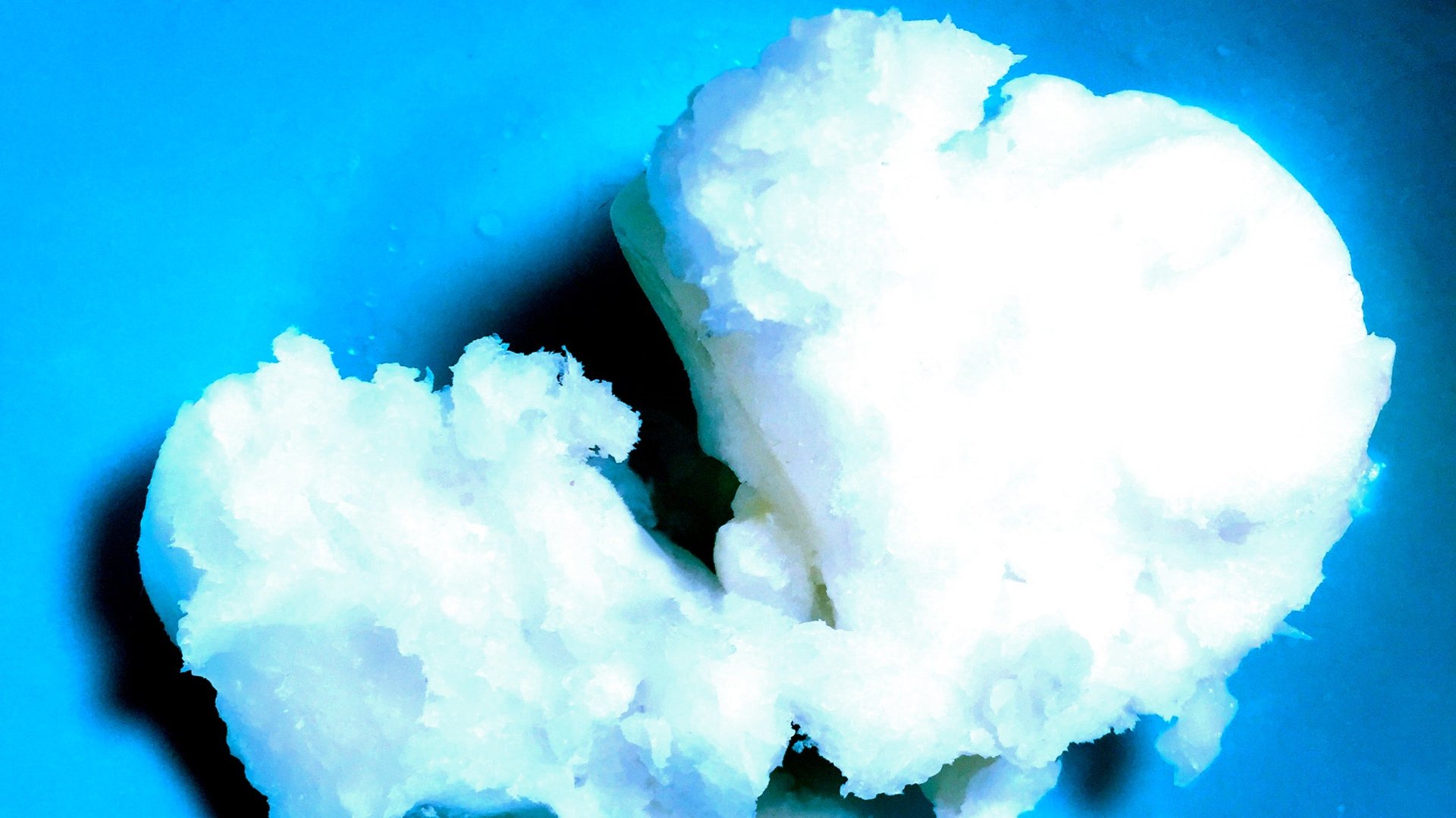The truth behind all the hype about coconut oil
Coconut oil, like lard, is white, hard, keeps without spoiling, and fries nicely. It’s also hailed as a natural miracle food.


Coconut oil, like lard, is white, hard, keeps without spoiling, and fries nicely. It’s also hailed as a natural miracle food.
After trans fats became unfashionable, tropical oils, briefly reviled for their high saturated fat content in the 1980s, became revered again. Coconut is the comeback kid, hailed not only for its culinary prowess, but also its beauty and health benefits. It’s said to promote oral hygiene and weight loss, prevent heart disease, diabetes and arthritis, fight infection, improve digestion and immune system function, and rejuvenate hair and skin.
Americans have embraced the so-called super food. In September, the natural food retailer Whole Foods wrote a special report on coconut oil, calling it the current ”sweetheart of culinary, beauty, sports and nutrition circles.” Data from SPINS, which does metrics analysis for the Natural, Organic and Specialty Products Industry, shows that US coconut oil sales exceeded $239 million in 2015, up 30% from 2014. Meanwhile canola and soybean oil sales fell during the same period. Brits crave coconut oil too, and UK Whole Foods buyer Daniel Rodriguez told the Telegraph in 2015, “We have seen the market at least doubling each year for the last three years.”
But in 2014, UC Berkeley Wellness examined the evidence behind claims of coconut oil’s star qualities and warned, “Don’t buy the hype that [coconut oil] will keep you healthy and slim or that it can treat or prevent chronic diseases.”
“There is nothing wrong with coconut oil in moderation, but it is not a cure for everything or a wonder fat,” says Laurence Eyres, an oil and fats specialist at the New Zealand Institute of Chemistry. Commonly made from dried meat of the fruit, coconut oil is 92% saturated fat, raising what’s called bad cholesterol, or LDL. It’s healthier than butter, but not as good as unsaturated plant oils. Add it to your culinary arsenal, Eyres advises, but be circumspect and keep context in mind.
Also, like lard, coconut oil is high in fat, so consuming large quantities of the oil can increase cholesterol and harm the heart, depending on your diet, lifestyle, and general health. “It would be dangerous, and rather silly, to replace your extra-virgin olive oil with coconut oil,” Eyres says.
Many factors could come into play when considering heart healthy populations that eat a lot of the stuff, like Pacific Islanders. After examining 21 studies, Eyres concluded in Nutrition Review that consuming coconut “in the context of traditional dietary patterns does not lead to adverse cardiovascular outcomes. However, due to large differences in dietary and lifestyle patterns, these findings cannot be applied to a typical Western diet.”
What has long worked for some won’t work for all. An active person on a fish and rice diet might benefit from the concentrated fat in coconut oil. That’s not necessarily so for a sedentary steak and potato eater. Yet three decades of experimentation with orphaned baby elephants in Kenya show coconut oil’s richness to be the best substitute for a mother’s nourishment, helping to keep the little ones alive until they could survive independently.
In other words, it’s complicated. Coconut oil is great for the same reasons it’s dangerous; it’s a really rich fat. This strength is also the coconut’s weakness. Good, bad, and beautifying, this impenetrable fruit is a contradictory mystery.